National
More problems likely to rain down on quake survivors this monsoon
The National Reconstruction Authority (NRA) is considering setting up what it calls “transitional shelters” for those whose houses were destroyed by the earthquakes last year, in an indication that quake survivors, who had to endure monsoon rains and biting cold last season under flimsy makeshift shelters, have to suffer yet another monsoon under these transitional structures.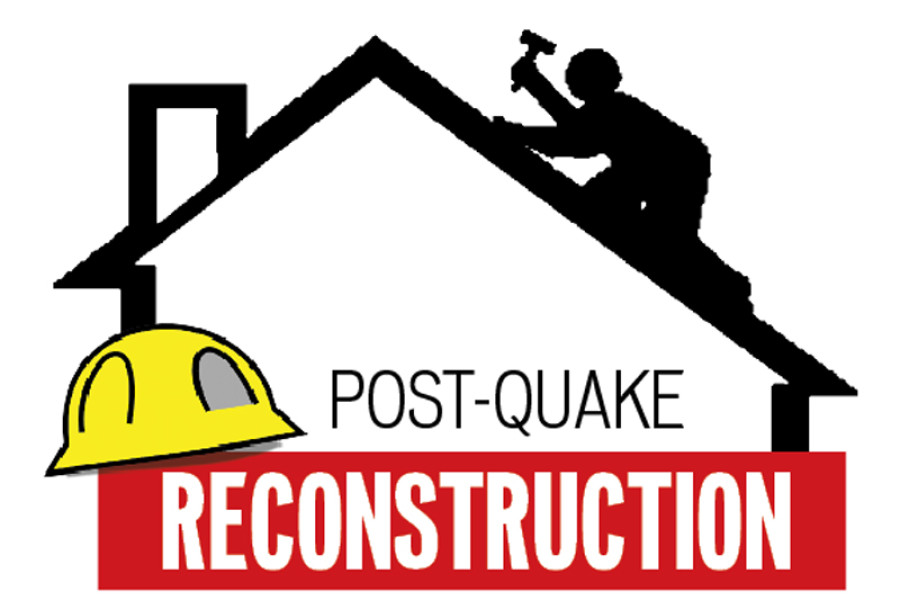
The National Reconstruction Authority (NRA) is considering setting up what it calls “transitional shelters” for those whose houses were destroyed by the earthquakes last year, in an indication that quake survivors, who had to endure monsoon rains and biting cold last season under flimsy makeshift shelters, have to suffer yet another monsoon under these transitional structures. In addition, no details are available as to what kind of “transitional shelters” the NRA is going to build.
In an indirect admission of reconstruction delays, officials at the NRA have said they are rethinking their original plan of starting rebuilding homes.
“It is not possible to reconstruct all quake-destroyed houses before monsoon,” said NRA Spokesperson Suresh Adhikari. “So, the government may have
to work on transitional housing.”
Adhikari insisted that the earthquake victims should not be left in the lurch if housing reconstruction fails to move ahead as planned.
The “transitional shelters” proposal from the rebuilding authority comes at a time when very little progress has been made in accelerating post-quake reconstruction in all 14 worst affected districts.
At least 770,000 households have been identified as quake-affected.
The Ministry of Home Affairs (MoHA), the ministry responsible for disaster relief and rescue works, had provide Rs 15,000 and Rs 10,000 to each household rendered homeless as immediate cash relief and winter relief in the aftermath of the quakes.
MoHA officials say any further assistance to the earthquake victims now falls on the shoulder of NRA.
“We handled relief distribution and shelter construction when the NRA was not there. From here on, it is up to the NRA to take life-saving measures,” said Joint-Secretary Rameshwor Dangal, who heads the disaster department at MoHA.
The NRA, which came into being months after the earthquake in April last year, first was mired in political wrangling over appointment of chief executive officers. In December last year, the NRA got its chief executive, but it still lacks staff.
“The NRA is clueless about how to move ahead. We have started work in
Singati of Dolakha, but have not been able to perform well in other districts in the absence of sub-regional offices,” said Spokesperson Adhikari.
Except a few junior level officers, almost all senior level officers deputed by the Ministry of General Administration have refused to join the NRA.
Out of 41 staffers recently deputed to the NRA, only six junior level officers have joined the office so far, according to details provided by the NRA.
The NRA is currently functioning with the help of 51 civil servants. An Organisation and Management Survey had estimated that at least 208 officials will be required to operate the NRA, but officials say that is not enough.
“We have signed aid agreements with 156 quake-affected households in the last three days, and the number of complaints has already reached 159,” said Labraj Joshi, focal person at NRA’s Singati Resource Centre.
As part of NRA’s plan to distribute the government-announced aid to earthquake victims to reconstruct damaged houses, the NRA began signing aid agreements with them on Sunday.
Two commercial banks and six Village Development Committees under the Singati Resource Centre had reached an agreement to distribute Rs 260 million as first installment to the quake-hit households.
A total of 5,300 households were recognised as genuine quake victims, but people in large numbers have complained that they were left out.
Out of total households identified as earthquake victims, 3,000 households have opened accounts with Nepal Investment Bank and Rastriya Banijya Bank. The NRA plans to distribute Rs 50,000 to each household as the first installment.




 14.83°C Kathmandu
14.83°C Kathmandu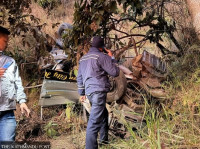
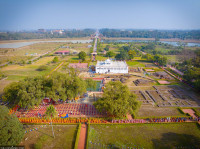



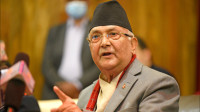


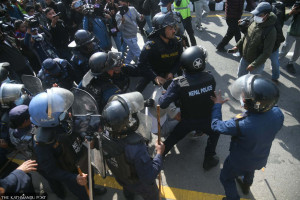

%20(1).jpg&w=300&height=200)




